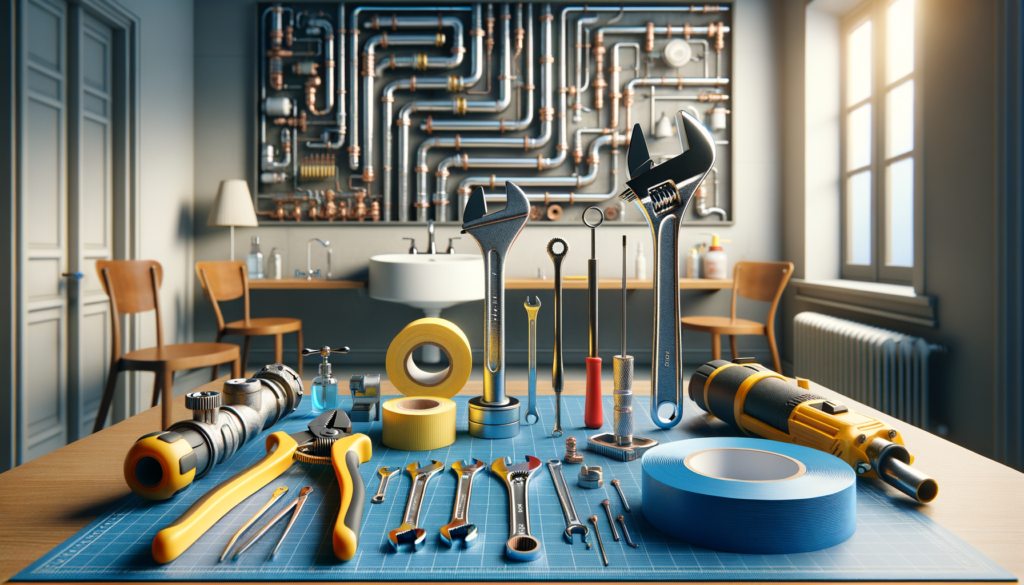The Finance Blog

Start a New Career as a Plumber with Training in the USA
Understanding the Basics of Plumbing Training
Plumber training is designed to equip individuals with the necessary skills and knowledge to handle various plumbing tasks. This training typically covers a wide array of topics, including pipe installation, repair, and maintenance, as well as water systems and drainage solutions. Understanding the basic concepts is crucial for anyone looking to enter the field, as it lays the foundation for more advanced skills.
Training programs often start with classroom instruction, where students learn about plumbing codes and regulations, safety procedures, and the tools of the trade. This theoretical knowledge is essential for ensuring that all work complies with local and national standards. For example, understanding the importance of adhering to plumbing codes can prevent costly mistakes and ensure the safety of both the plumber and the clients.
In addition to classroom learning, hands-on training is a significant component of plumber education. Practical experience allows trainees to apply their knowledge in real-world scenarios, which is vital for developing problem-solving skills. During this phase, students might work on mock setups or assist experienced plumbers in actual projects, gaining insights into everyday challenges and solutions.
- Classroom instruction on plumbing codes
- Hands-on experience with mock setups
- Safety procedures and tool usage
Overall, the combination of theoretical and practical training ensures that aspiring plumbers are well-prepared to tackle the demands of the job. By mastering these basics, individuals can build a strong foundation for a successful career in plumbing.
Exploring Advanced Plumbing Skills and Specializations
Once the basics are mastered, plumber training often delves into more advanced skills and specializations. This progression is essential for those looking to expand their expertise and increase their employability in the competitive job market. Advanced training typically includes specialized areas such as gas fitting, advanced pipe system design, and eco-friendly plumbing solutions.
Gas fitting is one area where plumbers can specialize, as it requires additional certification and training. This specialization involves installing and maintaining gas lines and appliances, which is a critical skill in many regions. With the growing emphasis on energy efficiency, eco-friendly plumbing solutions are also becoming more popular. This includes the installation of water-saving fixtures and the implementation of sustainable water management practices.
Another advanced area is pipe system design, where plumbers learn to create efficient and effective plumbing systems for residential, commercial, and industrial settings. This skill is particularly valuable in new construction projects, where innovative solutions can significantly impact the overall efficiency of the building.
- Gas fitting and certification
- Eco-friendly plumbing solutions
- Advanced pipe system design
By pursuing advanced training and specializations, plumbers can differentiate themselves from their peers and open up new career opportunities. These skills not only enhance job prospects but also contribute to personal growth and professional development.
Career Opportunities and Growth in the Plumbing Industry
The plumbing industry offers a wide range of career opportunities for those who have completed their training. With the increasing demand for skilled tradespeople, plumbers can find employment in various sectors, including residential, commercial, and industrial settings. This diversity allows individuals to choose the path that best aligns with their interests and goals.
Residential plumbing is one of the most common career paths, involving tasks such as installing and repairing water systems, fixtures, and appliances in homes. This area offers steady work, as homeowners often require plumbing services for maintenance and upgrades. Commercial plumbing, on the other hand, involves working on larger projects, such as office buildings, shopping centers, and schools. This path can be more challenging but also more rewarding in terms of career advancement and salary potential.
For those interested in industrial settings, opportunities exist in factories, manufacturing plants, and other large facilities. Industrial plumbers are responsible for maintaining complex systems that require a deep understanding of advanced plumbing techniques. This specialization can lead to higher-paying positions and increased job security.
- Residential plumbing for homes
- Commercial plumbing for larger projects
- Industrial plumbing in factories and plants
Overall, the plumbing industry is ripe with opportunities for growth and advancement. By completing formal training and gaining experience, individuals can build a successful and fulfilling career in this essential trade.









